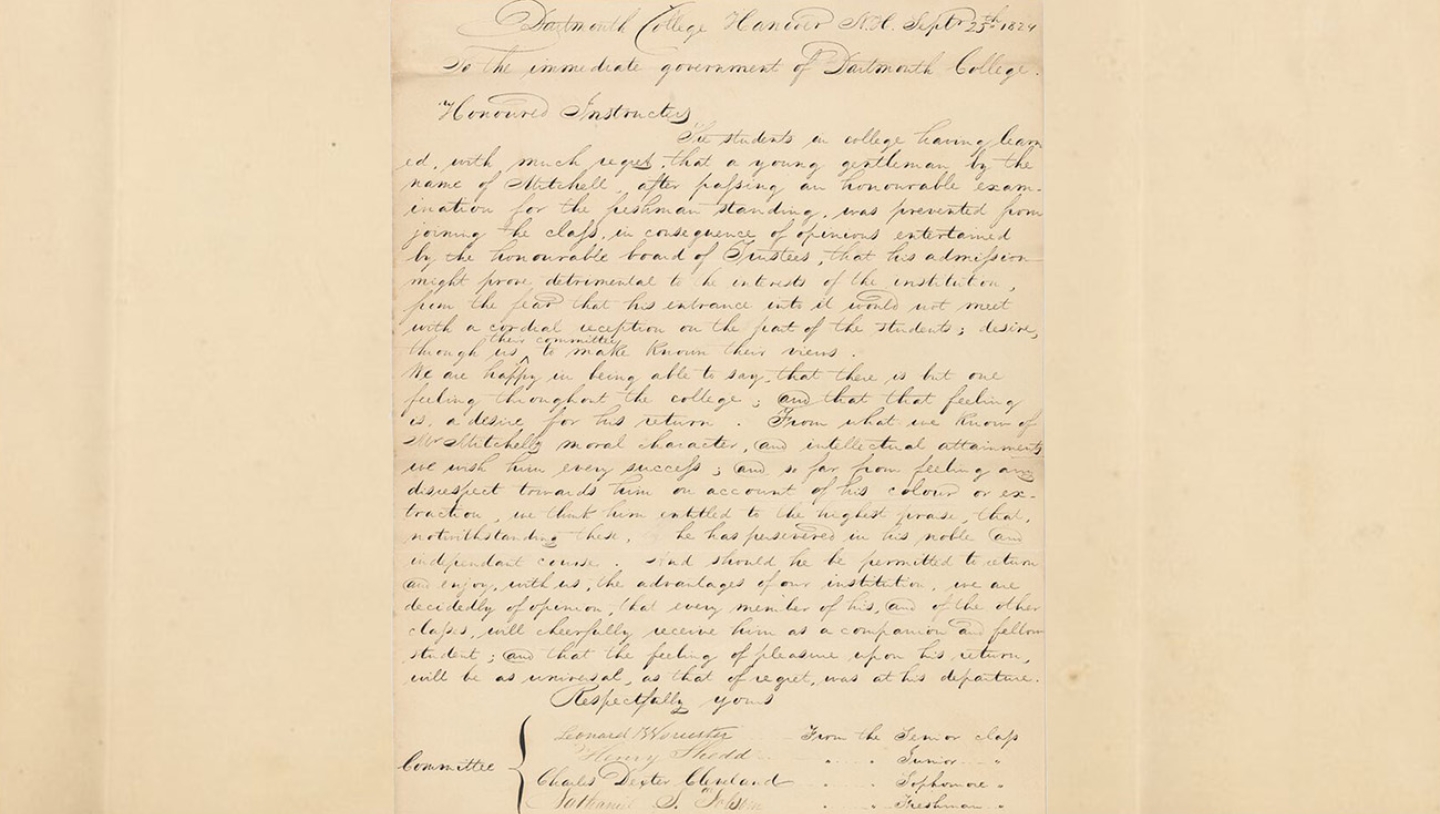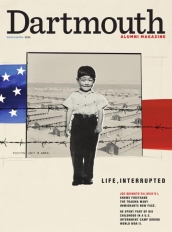Humble Beginnings: Born in the French slave colony of Martinique in 1792 and baptized in the Catholic Church as Édouard Michel, he went to work at sea as a young man, including service on a French warship at age 15.
A New Start: In 1811, Mitchell arrived in Philadelphia, determined to give up sailing and what he called his “wicked ways.” He started preaching as a Baptist and worked as a porter.
Good Fortune: He later wrote that providential fate brought him to Hanover in 1820, when Dartmouth President Francis Brown, ill and traveling from the South, hired Mitchell to drive his carriage home from Philadelphia. Brown died later that year, and Mitchell remained in town, boarding at Brown’s home.
In and Out: Mitchell passed the College entrance exam in 1824, and the faculty approved his admission. The trustees overruled and forced Mitchell to stop taking classes.
Students Rally: Undergrads petitioned the trustees on Mitchell’s behalf. “We think him entitled to the highest praise…he has persisted in his noble and independent course,” they wrote. “Should he be permitted to return…we are decidedly of opinion that every member of his, and of the other classes, will cheerfully receive him as a companion and fellow student, and that the feeling of pleasure upon his return will be as universal as that of regret was at his departure.”
Onward: The trustees reversed their decision, and Mitchell graduated without “a single insult from a fellow student,” according to one account. He joined one of the two fraternities on campus. After graduation, Mitchell preached in New England before moving with his second wife and children to Quebec, where he worked as a minister for nearly 40 years. He was praised in the 1881 Baptist Encyclopaedia as “the most profound theologian ever to have resided in this region.” He died in 1872. By that time, at least 20 more Black men had attended the College.
Legacy: In the 1990s archivists found a trove of Mitchell’s writings at the McCord Stewart Museum in Montreal. The Edward Mitchell Collection, a digitized collaboration between the museum and Rauner Special Collections Library, includes his Dartmouth papers, texts of his sermons, and other notes.





